News & Events
Cincon Power solution for Internet of Things
25
Feb
Feb 25, 2022
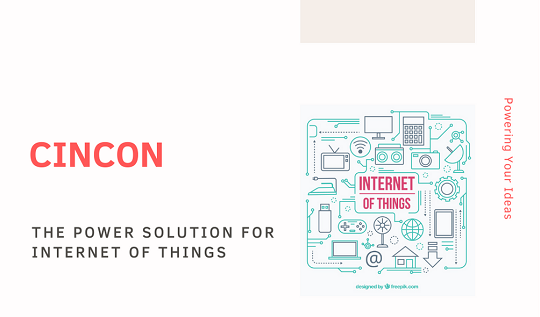
Premises:
IOT (Internet of Things) is a concept to connect everything together from household appliances to public surveillance cameras and achieve automatic control of everything. Thanks to the 5G technology, multiple IOT devices could be connected and share data in real-time to provide precise actions. With the growth of IOT market, the demand of various power shows up. In this article, we will take two examples and analysis the structure in applications.
Overview of IOT device and power requirement:
What are those IOT devices? The most common devices are sensors, cameras, robots, household appliance, and personal wearable devices etc. The IOT features are embedded in the main device and make it able to connect to the Internet. Take a closer look at IOT part, the required power consumption is not large, the size of the power supply should be small, and the high reliability is essential. The following are the items that are most demanded in this category:
1.AC-DC power supplies: 6W-20W
2.DC-DC converters: 1W-30W
3.Isolated / Non-Isolated DC-DC converter
4.Standard compact size or smaller: 0.77” x 0.24”, 0.86” x 0.36”, 1” x1”, 2” x 1”
5.Low power consumption: less than 0.1W
6.Fully protection mechanism: OCP/OVP/OTP
7.High reliability: MTBF is up to 1M hours
Real application example: IOT for Bus system:
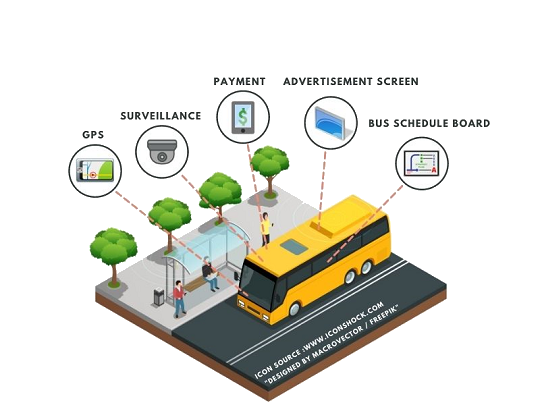
Fig 1. Bus system
Taking a Bus system as the example, the IOT devices could be GPS devices, indoor surveillance cameras, Ticket/E-payment system, schedule information board, and advertisement board. The Router plays the role of a coordinator to connect all the devices on the bus and transfer the data through the Internet. Passengers could catch the routing information from the Internet, and the control station could monitor the bus status remotely. The power structure could be easily presented as below by Cincon’s DC-DC converter:
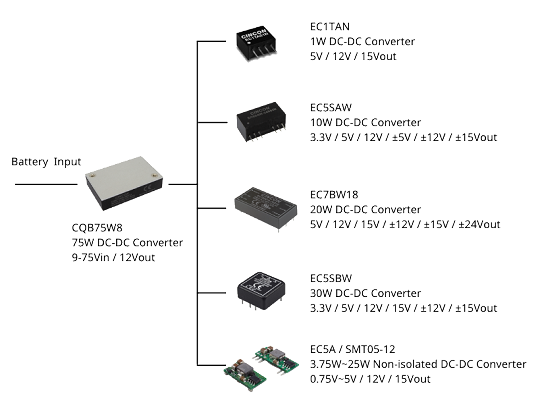
Fig 2. DC power structure of IOT solution
The battery power supplies the router first, and then it connects to multiple IOT devices. Those devices could be tiny sensors or embedded in display boards. Designers could choose from simple non-isolated POL (Point of Load) to encapsulated and isolated converter. Cincon has various options from 1W to 30W DC-DC converters to cover this category.
Real application example: IOT for Public bank system:
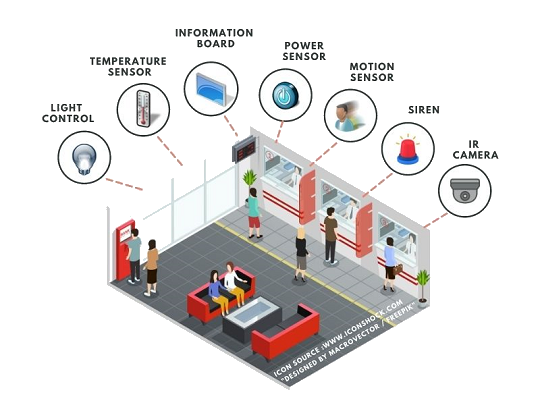
Fig. 3 Public Bank
Another example of IOT application is public bank system. In a public area, the IOT devices could be various from thermal control, security camera, motion sensor, lighting control, to warning system etc. The sensors are part of the main device and take AC power source mostly. The demand also falls on low wattage power supply.
The power structure could be referred as following by Cincon’s low wattage AC-DC power supplies:
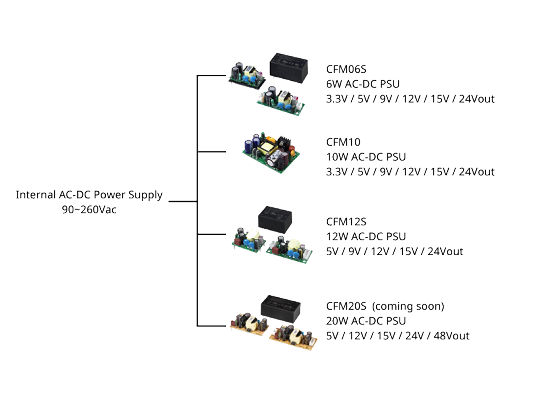
Fig 4. AC power structure of IOT solution
Unlike the previous example of bus system, these IOT sensors work under different function groups and integrate the data into its system. The power of these sensors comes from AC source directly and supplies the individual function block. Cincon provides low wattage AC-DC power for selection with features of low power consumption or encapsulated option. Completed protection mechanism ensures the safety of the whole system.
Summary:
The demand for IOT power focuses on low wattage, small size, and high reliability in order to fit in IOT electronic devices. To fulfill the various scenarios, Cincon has comprehensive product lines for AC-DC or DC-DC low wattage power supplies to choose. Check our website or contact us for more information.
Product page:
Contact for more support: sales@cincon.com.tw















































